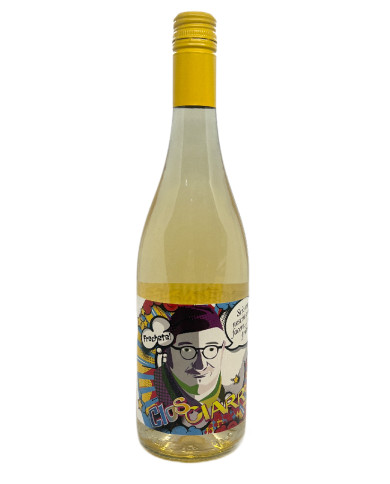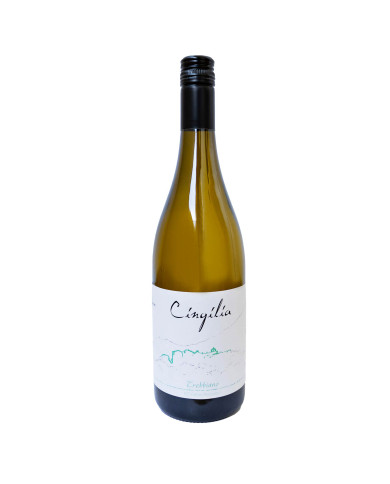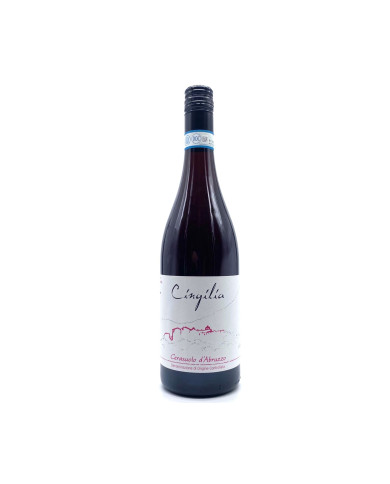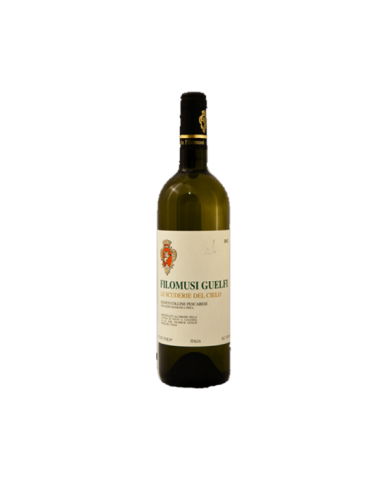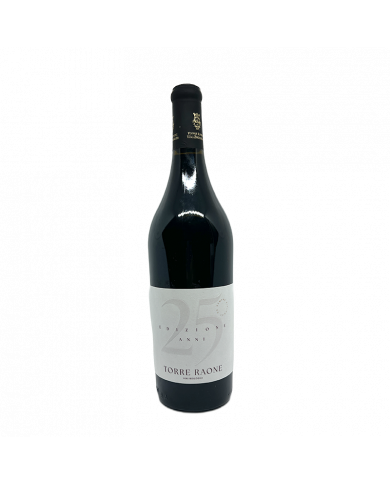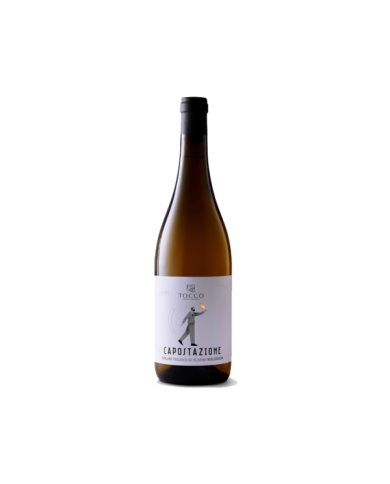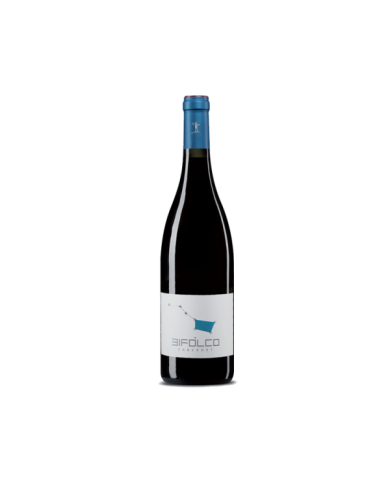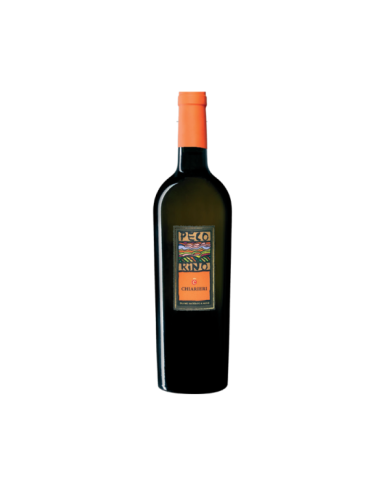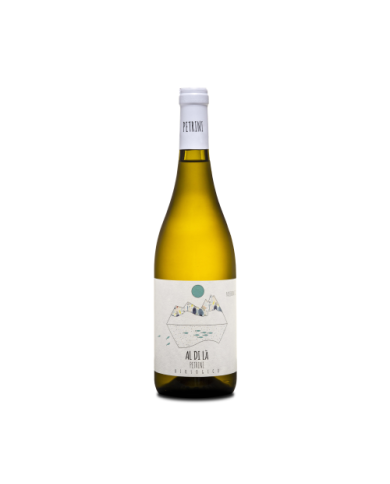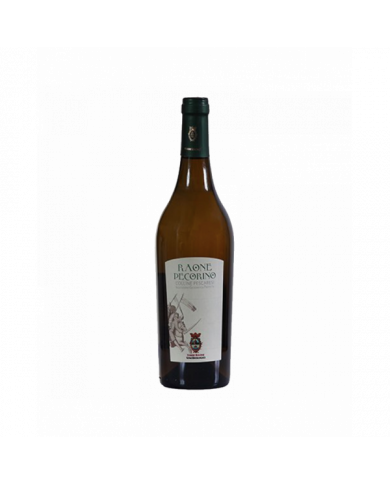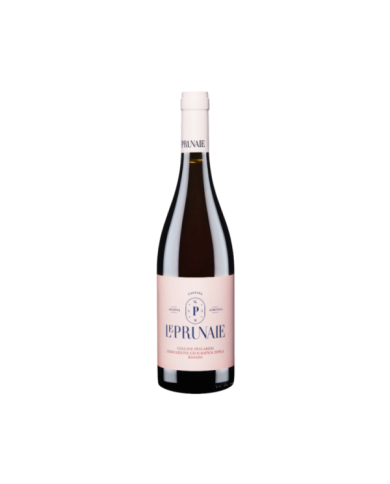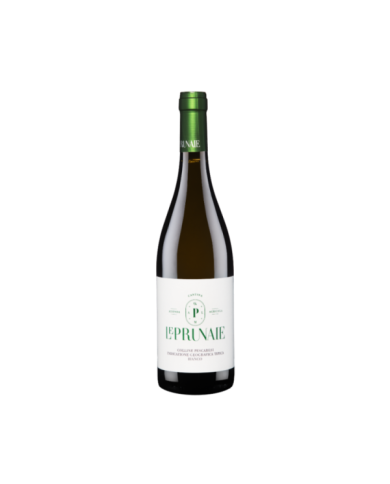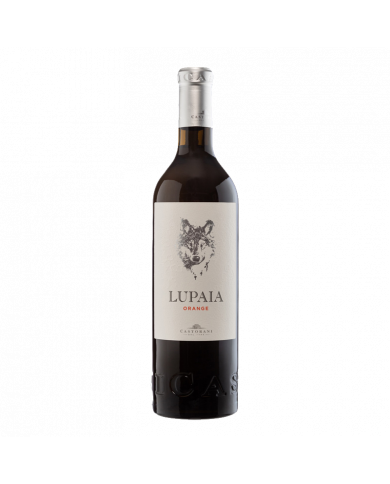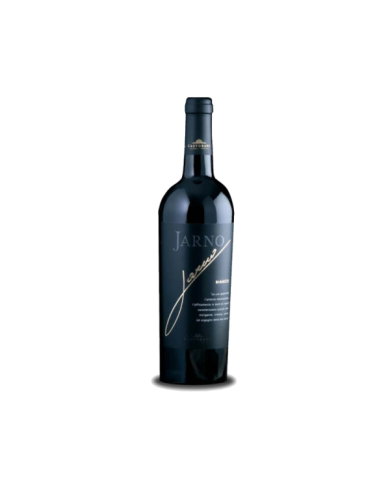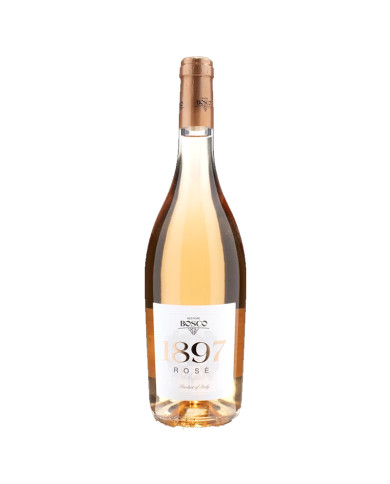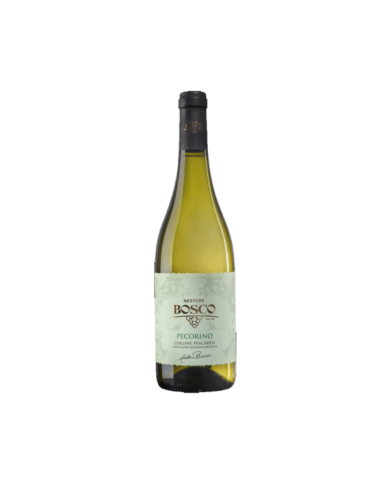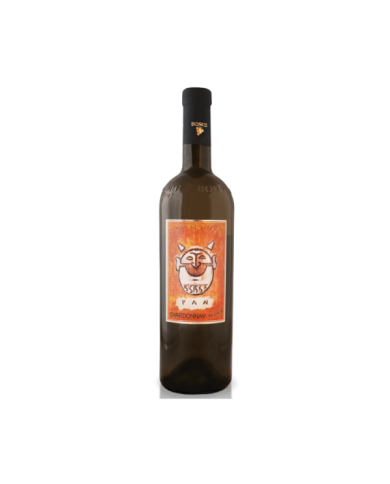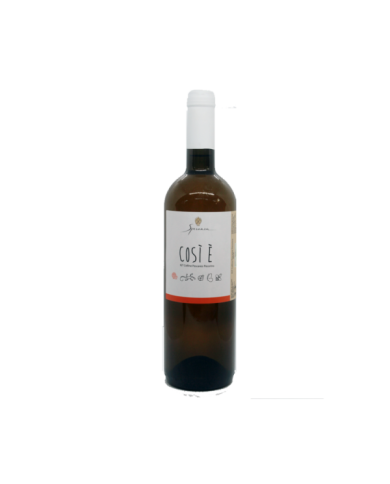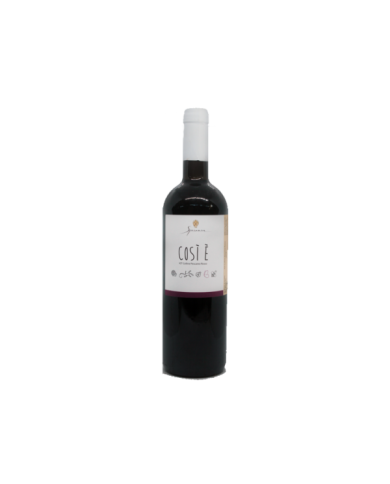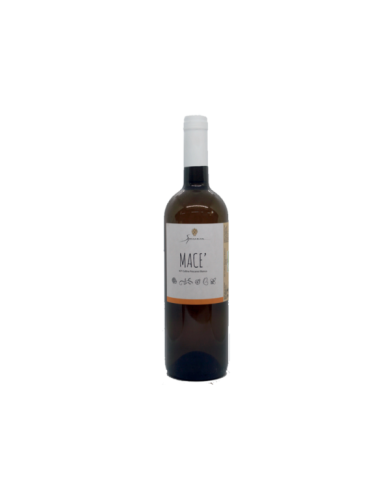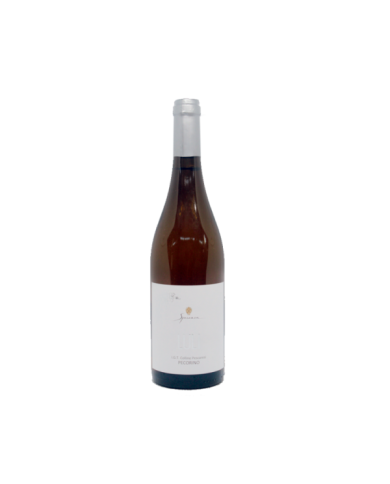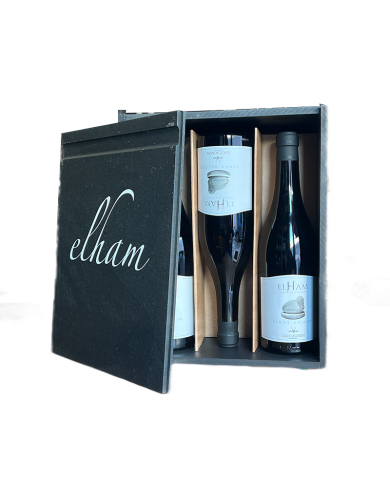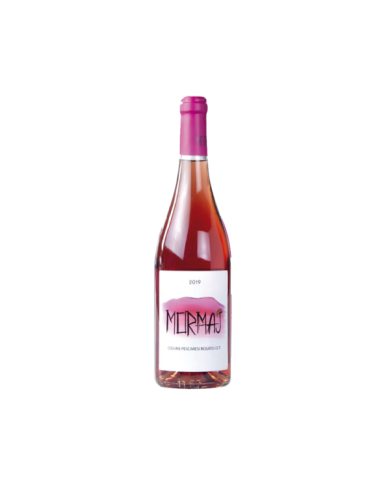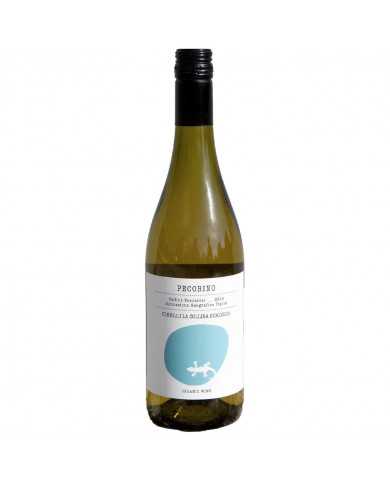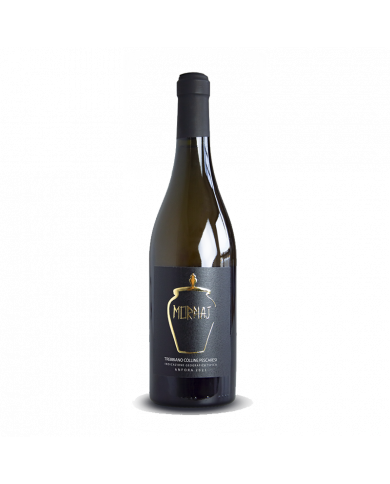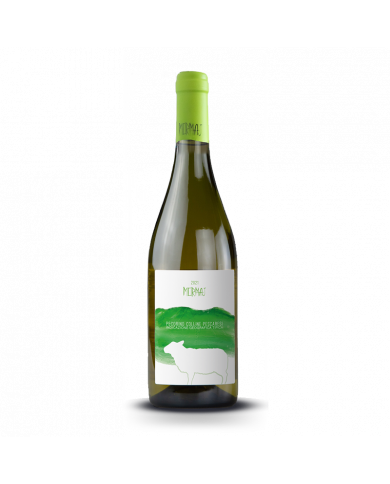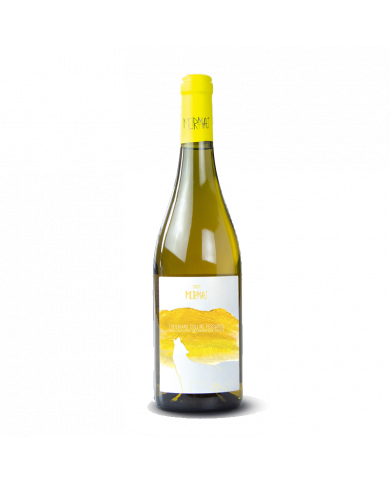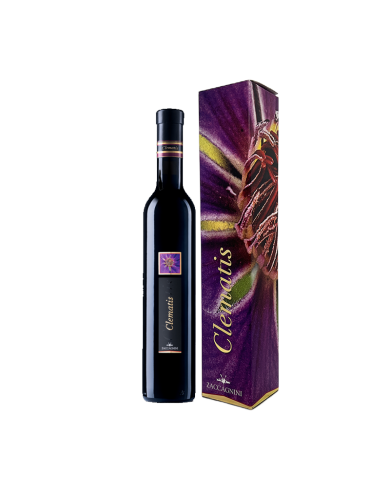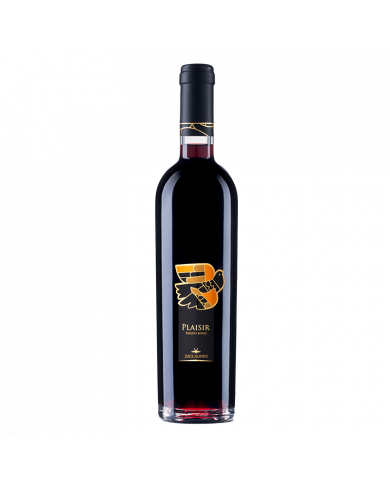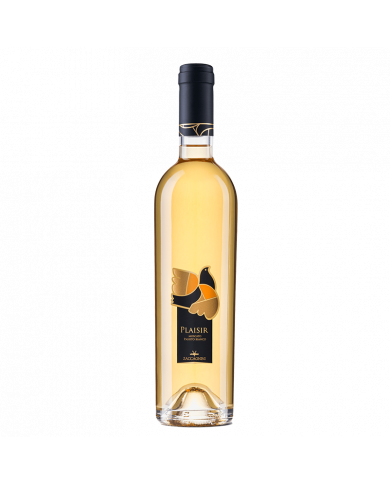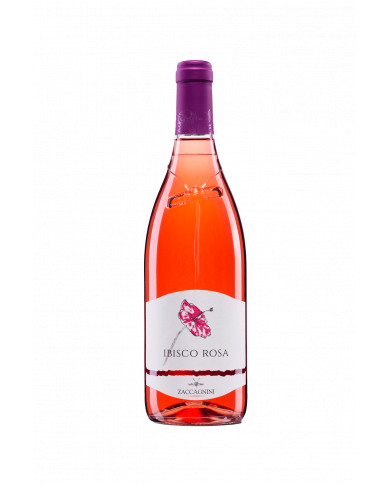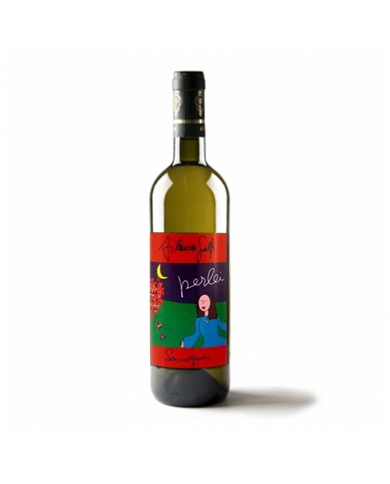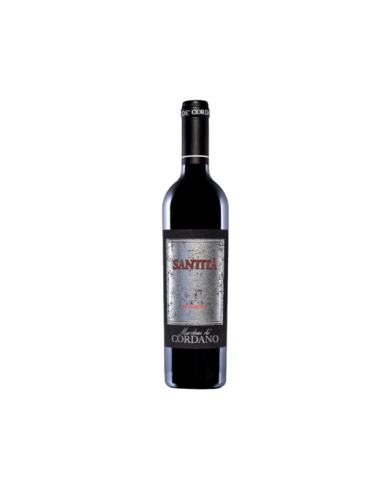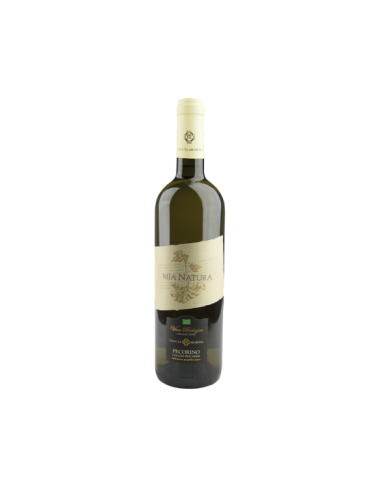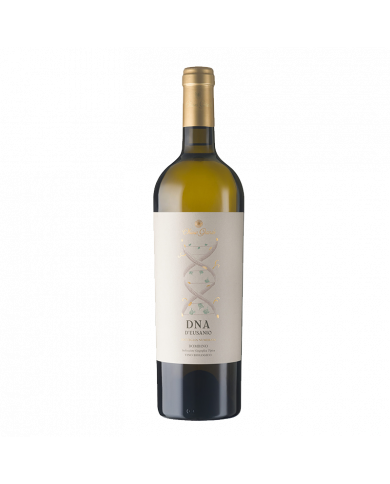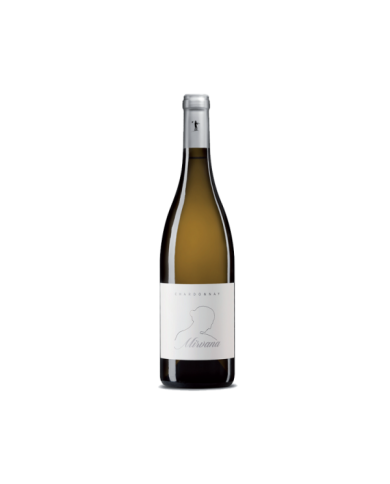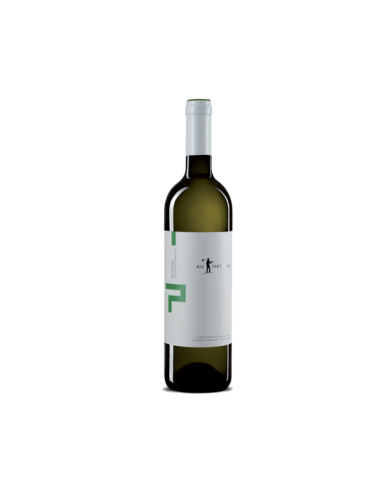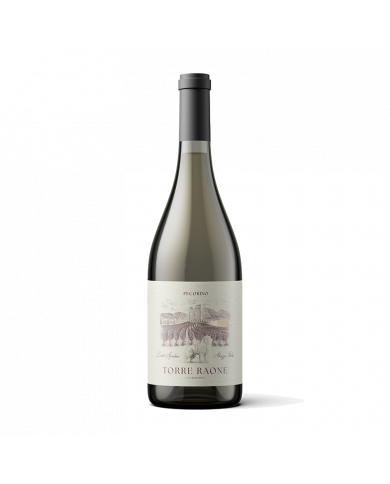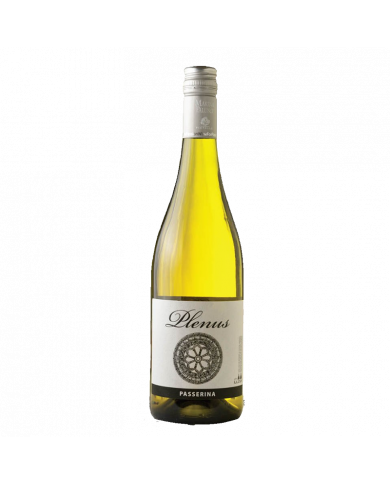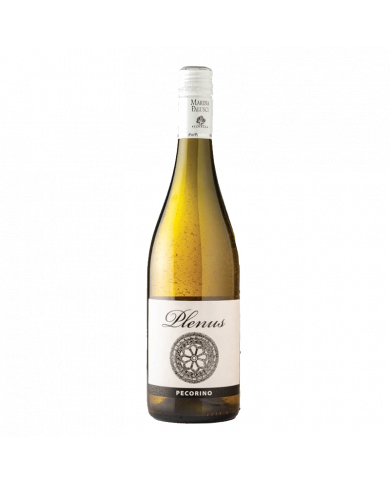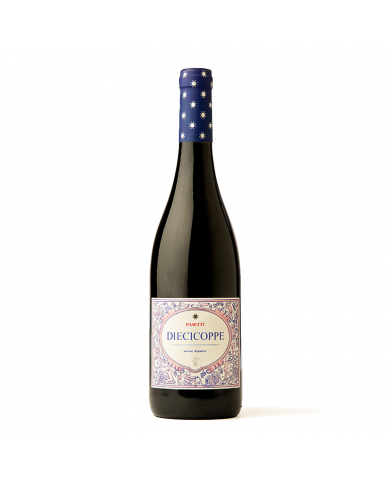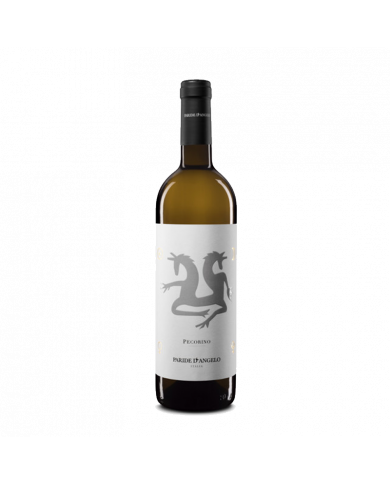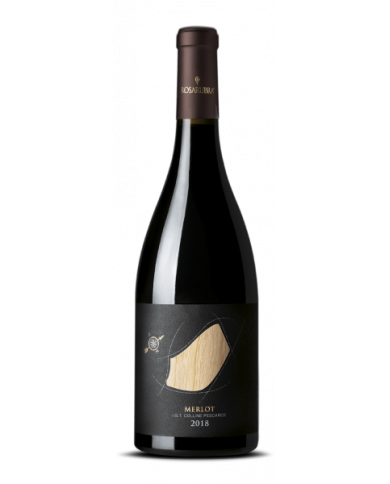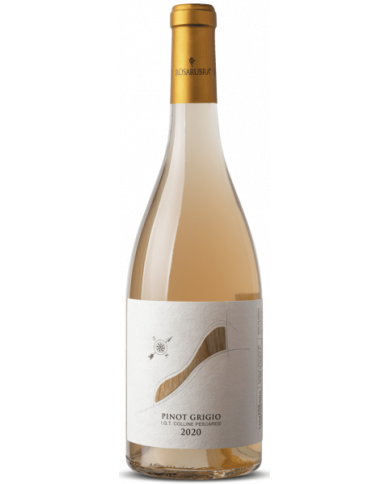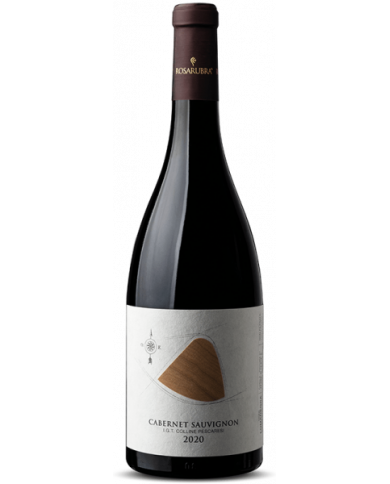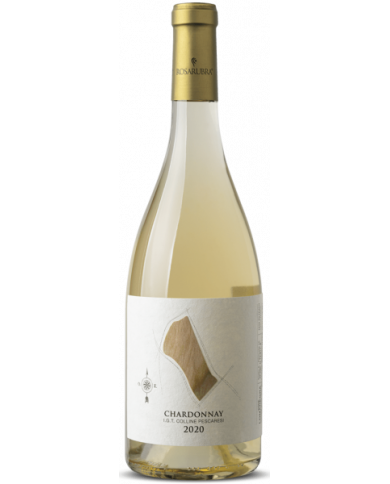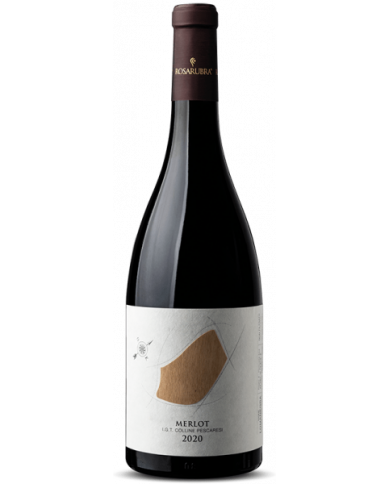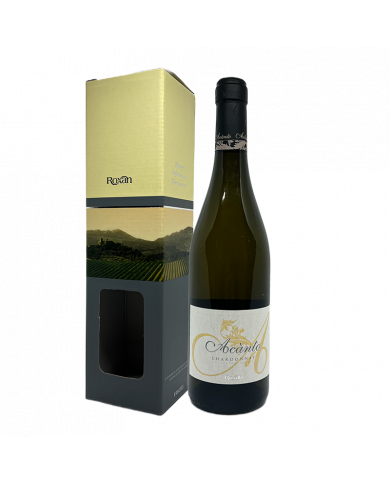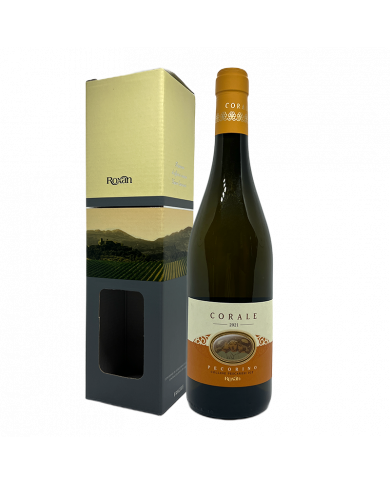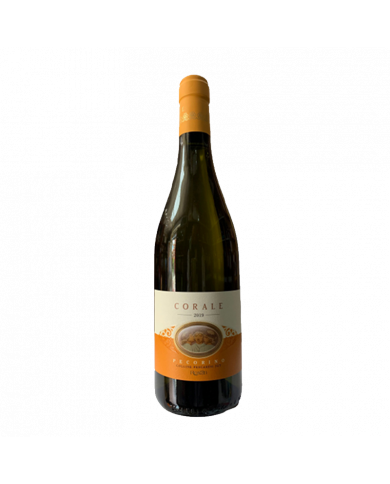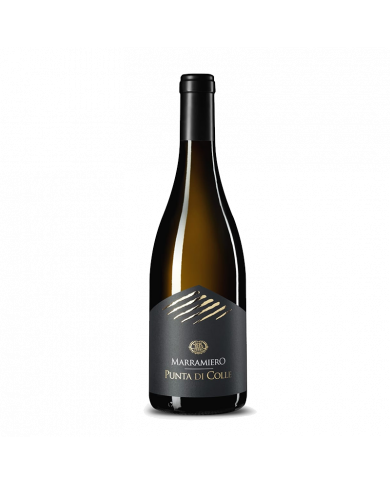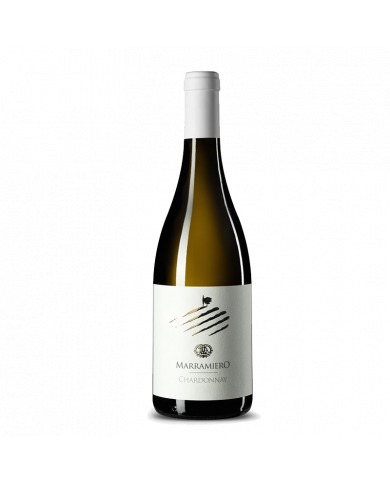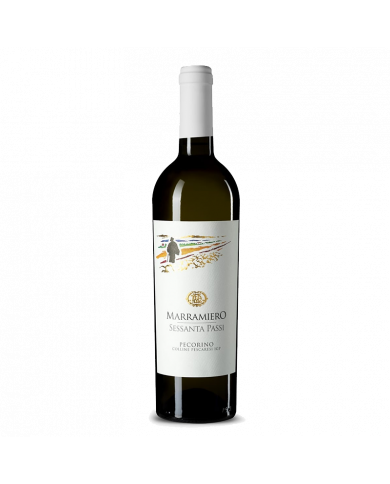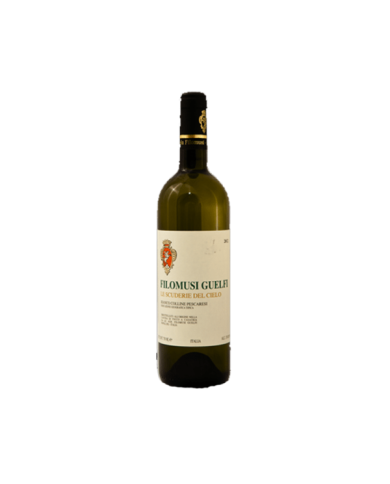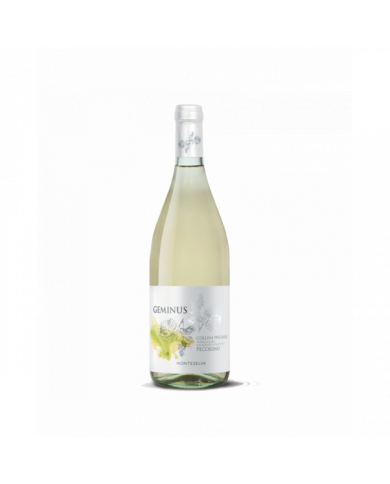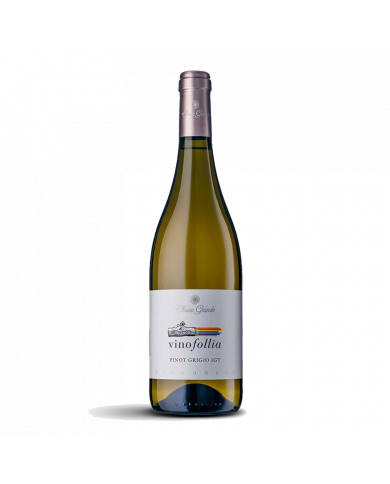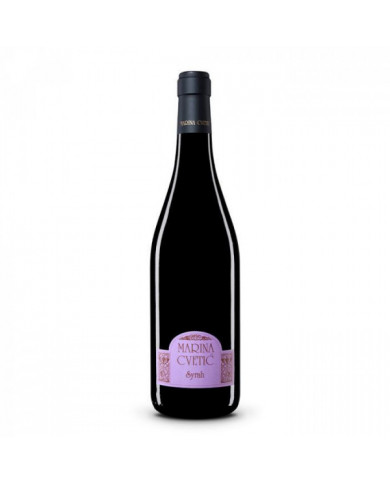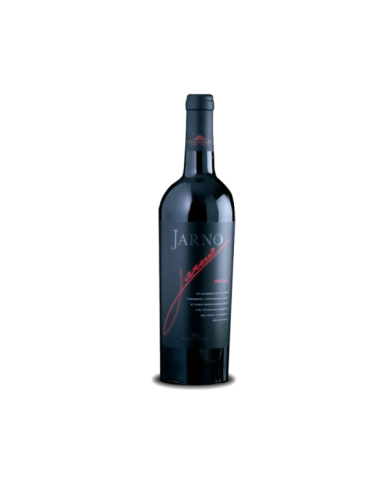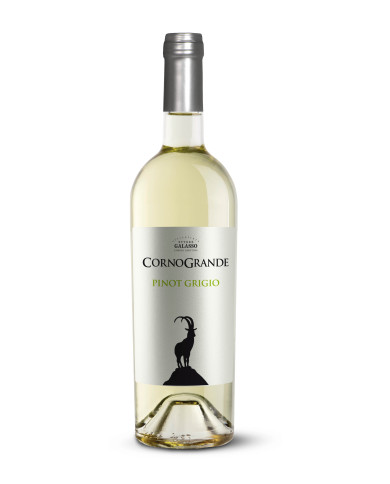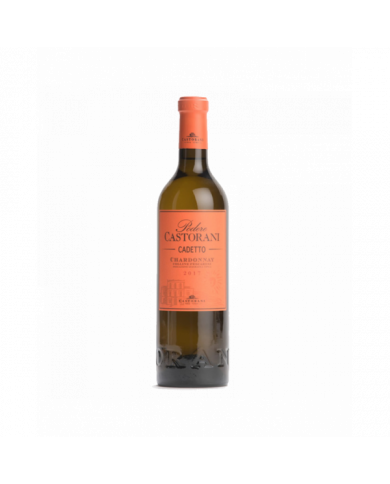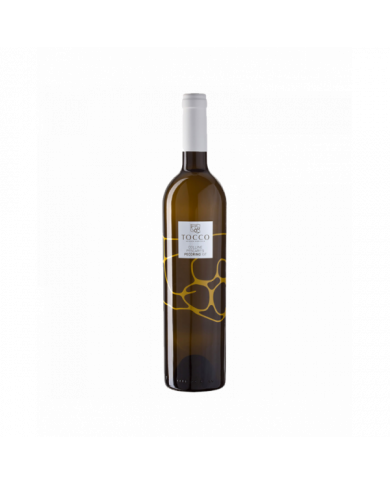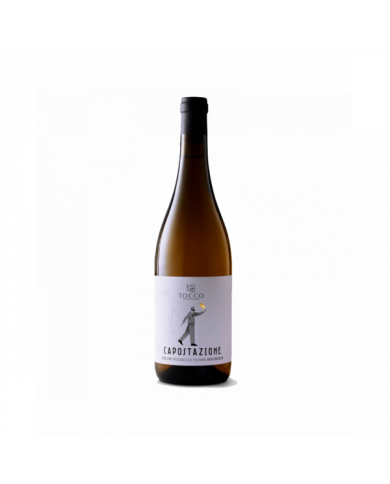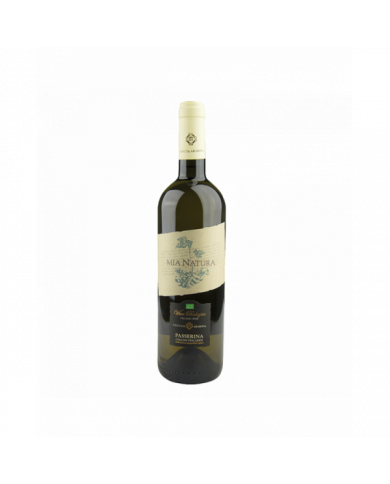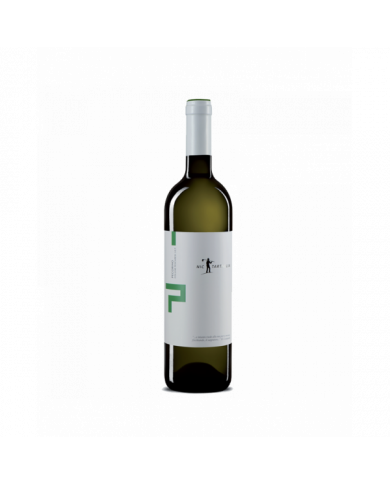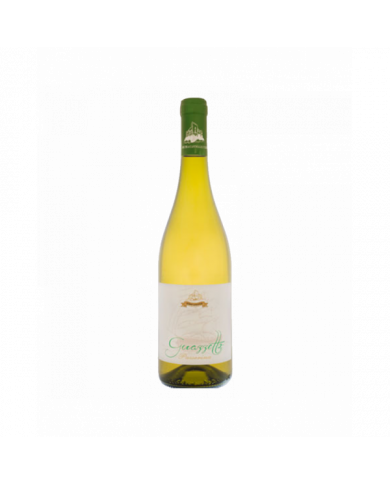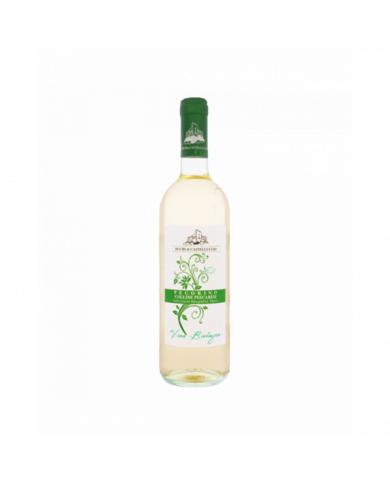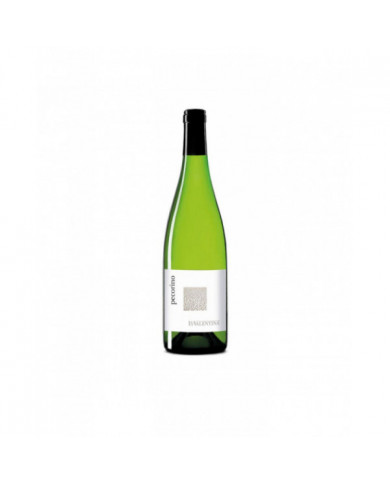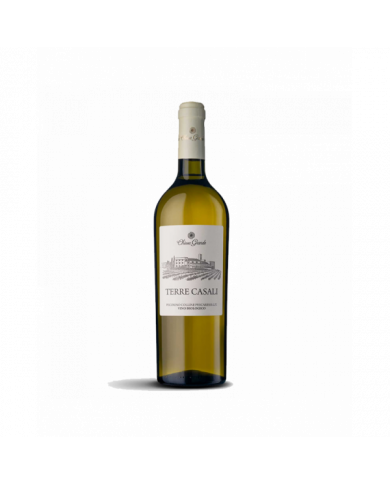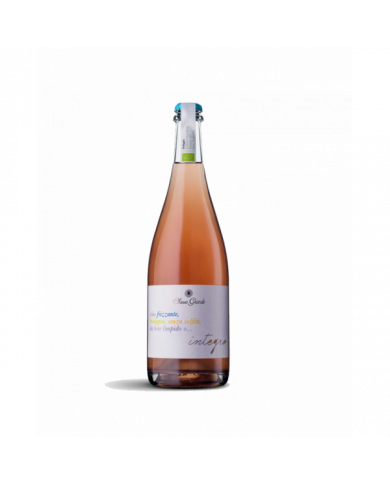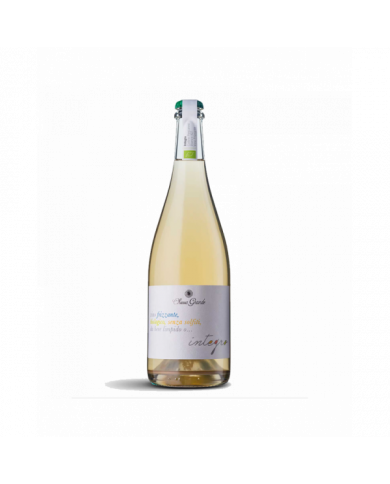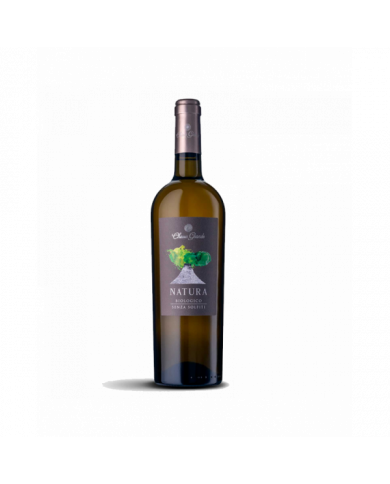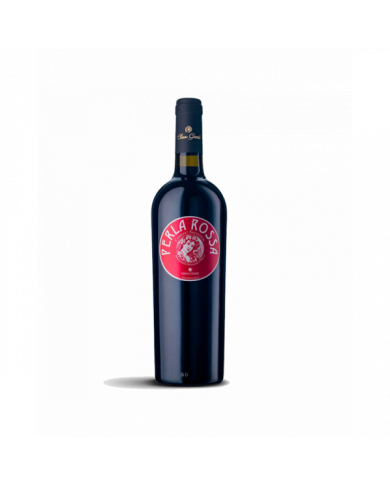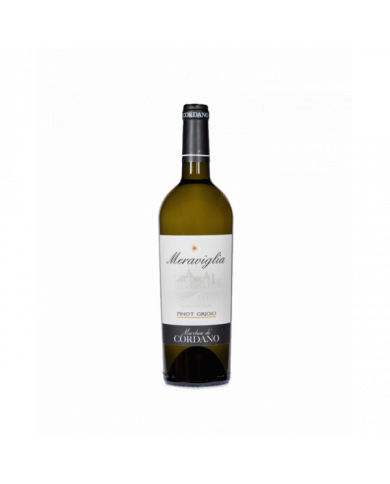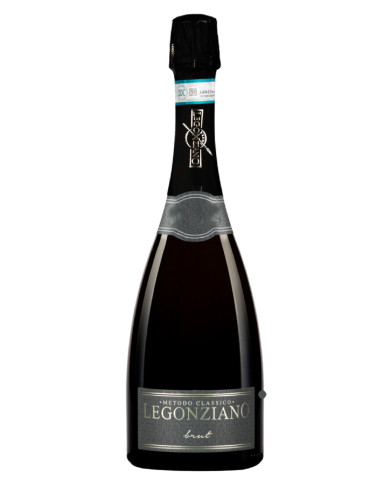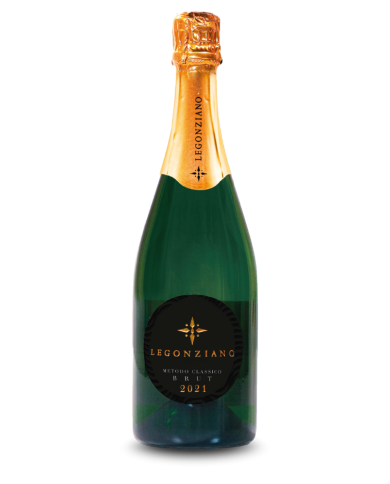Il Pecorino di Cingilia ├© un vino bianco prodotto nel comune di Cugnoli (PE), a 300 metri sul livello del mare su terreno argilloso e calcareo. Fermenta spontaneamente e affina sur lies per diversi mesi in serbatoi di acciaio inox con rimescolamento periodico delle fecce.
La Passerina di Cingilia ├© un vino bianco vinificato a temperatura controllata tramite pied de cuve preparato qualche giorno prima della vendemmia. Affinamento in acciaio sulle fecce fini.
Dress the glass in a beautiful ruby red. The nose first reveals memories of black cherries, plums and black currant, then completed by spicy, herbaceous and medicinal herbs nuances. Warm and soft the sip, rightly tannic and slightly savory, characterized by a finish that recalls licorice and black pepper.
To combine with meat dishes, it is excellent with roast lamb chops.
Stationmaster Pecorino IGT Colline Pescaresi Bio, a white wine with a bright straw yellow color with greenish reflections. The nose is fruity with pleasant notes of fresh and exotic fruit that blend with elegant floral scents. The flavor is full-bodied, fresh, with the right amount of flavor, balanced and intense. It goes well with fish-based dishes, even structured ones. White meats and soft cheeses, simple or flavored.
Cabernet Sauvignon is the grape variety, "BIFOLCO" is the name and, since the "Big Cart" lacks the oxen that should pull it, the attention shifts to the search for that "Little Cart" Polar Star which is not there but winks at direction of QualityŌĆ” Clear in the luminous hints of jam and in the celestial darkness of tobacco. Paradigmatically vegetal in a nebula of balmy sensations.
Straw yellow with a good load of color to the eye. The nose is clean and punctual, characterized by fruity hints of apricot, pear and tropical fruit, then completed by chalky and floral nuances of chamomile. Savory and fresh on the palate, with good balance and good length.
Perfect to accompany seafood cuisine, it is excellent to be paired with pan-fried mullets.
Il Pecorino di Cingilia ├© un vino bianco prodotto nel comune di Cugnoli (PE), a 300 metri sul livello del mare su terreno argilloso e calcareo. Fermenta spontaneamente e affina sur lies per diversi mesi in serbatoi di acciaio inox con rimescolamento periodico delle fecce.
La Passerina di Cingilia ├© un vino bianco vinificato a temperatura controllata tramite pied de cuve preparato qualche giorno prima della vendemmia. Affinamento in acciaio sulle fecce fini.
Il Cococciola della cantina Cingilia ├© un vino bianco di straordinaria dinamicit├Ā e leggiadria, prodotto sulle Colline Pescaresi seguendo una visione produttiva artigianale. Il Cococciola ├© un vitigno a bacca bianca autoctono dellŌĆÖAbruzzo, tradizionalmente impiegato in assemblaggio con altre variet├Ā locali come il Trebbiano, sebbene siano sempre pi├╣ diffuse espressioni in purezza.
Il vino rosato IGT Colline Pescaresi si presenta nel calice di un colore rosa corallo tenue. AllŌĆÖolfatto si esprime con note di piccoli frutti rossi (fragoline di bosco e lamponi) accompagnato da sentori agrumati e di melograno. In bocca ├© verticale: sapido, fresco con una chiusura morbida. Abbinamenti consigliati: primi piatti a base di pesce, piatti vegetariani e ottimo anche come aperitivo e per accompagnare fritture di pesce.
From an overripe harvest of Montepulciano and Merlot grapes , a wine with a sumptuous fragrance combined with an extraordinary softness is born. The residual sugar resulting from the partial drying of the bunch on vines over 30 years of age, blends with an elegant concentration of extractive elements that recall morello cherry, plum and red fruits, revealing a harmoniously balanced tannin. Its essence fascinates the palate offering sensations of aromatic fullness and fruit integrity. \ n \ nAn important, round, extremely pleasant wine, to combine with complex dishes or to sip in deep meditations.
Orange color with golden reflections. Bouquet intense notes of officinal and balsamic herbs. On the palate it is soft, full with a persistent aftertaste.
Young wine loved by young people, it manages to be appreciated for its freshness and easy drinking. Wine that is good for the palate on warm evenings for dinner with friends. Having a good supply in the fridge also refreshes the soul. Recommended pairings : Preferable for the whole meal and with spaghetti with seafood, fried fish, and / or raw fish, seasonal vegetable soup, peppered mussels, fresh, rustic cheeses, savory pizzas. Uncork and serve at a temperature of 10 ┬░ C.
Ranked among the top 10 wines of this region by number of awards won: the 2006 vintage was awarded the gold of Chardonnay-du-Monde. One of the best IGT wines from the Pescaresi Hills that people are looking for. This producer produces a wide range of wines, including those from Trebbiano (Ugni Blanc), Rare White Blend, Montepulciano, Rare Rose Blend, Cabernet - Montepulciano and Pecorino grapes.
Golden yellow color, with fruity and floral aromas where mimosa stands out, bursts with a fresh and savory sip.
Ruby red color, crisp red fruit emerges on the nose, followed by vegetal, spicy and floral hints. It is supported by a fresh and savory sip.
Golden yellow in color, it appears floral and fruity on the nose, where hints of ripe yellow peach prevail. On the palate it is warm, medium-bodied and with good acidity.
Abruzzo pecorino rich in aromatic notes of honey, resin and dehydrated lemon. A dense structure with a final charged with positive energies. Ideal with fish recipes.
Abruzzo pecorino rich in aromatic notes of honey, resin and dehydrated lemon. A dense structure with a final charged with positive energies. Ideal with fish recipes.
Color: Light yellow color with coppery reflections. Smell: Intense bouquet with hints of melon, carob, pear, almond blossom and with hints of ginger and candied papaya. Taste: Fine and elegant taste, well structured, enveloping, savory and well balanced.
Intense straw yellow. The nose is expressed with hints of exotic fruit and floral notes of hawthorn. On the palate it is fresh, with good flavor and balanced.
The terracotta, in which the spontaneous fermentation and refinement of MORMAJ Anfora takes place, makes the organoleptic qualities of this wine particular and unique!
In our cellar, between the MORrone and MAJella mountains, MORMAJ is born, a still white wine obtained through spontaneous fermentation, not clarified, it is aged in steel tanks.
In our cellar, between the MORrone and MAJella mountains, MORMAJ is born, a still white wine obtained from Trebbiano grapes through spontaneous, unclarified fermentation, it is aged in steel tanks.
Color: Light yellow color with coppery reflections. Smell: Intense bouquet with hints of melon, carob, pear, almond blossom and with hints of ginger and candied papaya. Taste: Fine and elegant taste, well structured, enveloping, savory and well balanced.
Color: Intense ruby red. Smell: The nose is elegantly austere, with hints of black fruit in alcohol and hints of licorice. Taste: On the palate it has a broad and harmonious taste, extremely persistent.
Color: Dark ruby red color. Smell: Bouquet of raisin flowers and red fruit in alcohol, with hints of licorice. Taste: It is persistent with sweet spices and licorice.
Color: Golden yellow wine. Smell: Aromas of dried sweet fruit, cedar, dehydrated apricot and honey. Taste: Extremely sweet, mitigated by a good freshness, which prolongs the aromatic sensations of dried fruit.
Color: Intense ruby red color with garnet reflections. Smell: Intense, particularly complex aroma. It expresses itself with fruity notes of black berried fruit, enriched by spicy nuances of black pepper, cinnamon and vanilla with mineral hints of graphite. Taste: In the mouth it shows a vigorous structure with tannins of impressive length and fine grain
Color: Bright pink of medium intensity. Smell: Fragrant nose with floral notes of rose and sour red berried fruit (raspberry, strawberry). Taste: On the palate it is punctuated by freshness and sapidity, which characterize the pleasant sip with the aromatic finish of small red fruits.
For over two centuries, the Filomusi Guelfi farm has been cultivating Montepulciano d'Abruzzo and producing wines for those who believe in quality.
Golden yellow in color, it appears floral and fruity on the nose, where hints of ripe yellow peach prevail. On the palate it is warm, medium-bodied and with good acidity.
Ranked among the top 10 wines of this region by number of awards won: the 2006 vintage was awarded the gold of Chardonnay-du-Monde. One of the best IGT wines from the Pescaresi Hills that people are looking for. This producer produces a wide range of wines, including those from Trebbiano (Ugni Blanc), Rare White Blend, Montepulciano, Rare Rose Blend, Cabernet - Montepulciano and Pecorino grapes.
With an intense ruby red color, it is a velvety wine, which contains hints of cherry, raspberry and dried fig. On the palate it reveals slight notes of violet that pamper and caress the end of the meal. Maximum Expression: 8-10 years. Vinification: On the skins for 18 days, followed by static decanting in large barrels. The wine is aged for 9 months in barriques and then rests for 6 months in the bottle.
Mirvana Chardonnay 100% by Nic Tartaglia , quiet, dry, from grapes grown on the Pescara hills at 300 meters above sea level. Cultivated with the Abruzzo pergola system, commonly called 'hut', it yields almost 100 quintals per hectare. The harvest takes place at the end of August and the fermentation at 15 degrees centigrade allows to preserve the characteristic aromas of this cultivar. Mirvana does not carry out malolactic fermentation and refines 9 months in barrique.
Nic Tartaglia 's pecorino is a natural self-certified wine. The grapes are harvested at the end of August and after a soft pressing follows a fermentation at a controlled temperature at 16 ┬░ C for about 20 days. No chemicals are used in the vineyard and in the cellar. A wine with an intense straw yellow color, with an intense aroma among which aromas of freshly cut grass, mineral and floral notes stand out. A full-bodied pecorino, characterized by a delicate flavor. We recommend it in combination with white meat or fish dishes.
Torre Raone Pecorino is a "bright straw yellow with golden hues" wine produced by Torre Raone in Abruzzo.
Dress the glass in a beautiful ruby red. The nose first reveals memories of black cherries, plums and black currant, then completed by spicy, herbaceous and medicinal herbs nuances. Warm and soft the sip, rightly tannic and slightly savory, characterized by a finish that recalls licorice and black pepper.
To combine with meat dishes, it is excellent with roast lamb chops.
Plenus Passerina of the Azienda Marina Palusci is a wine obtained with spontaneous fermentation with indigenous yeasts present on the skins of the grapes themselves.
This wine is obtained from a spontaneous fermentation with indigenous yeasts naturally present on the skins of the grapes themselves.
Plenus Pecorino of Marina Palusci company is a wine obtained from spontaneous fermentation with indigenous yeasts present on the skins of the grapes themselves.
Orange color with golden reflections. Bouquet intense notes of officinal and balsamic herbs. On the palate it is soft, full with a persistent aftertaste.
An exuberant, young and fresh red. The diecicoppe is a blend of Montepulciano d'Abruzzo and Cabernet and is expressed in the glass in an explosion of fruits and aromas. Excellent with red first courses, vegetable and legume soups, lamb, kid and meats cooked with aromatic herbs.
The typical varietal notes of this vine are wrapped in the fairytale-like caliber of the terroir of origin.
The initial sensation is sweet and over time it fades into dryness, in a habitat of warmth and softness, where the olfactory scents are confirmed with a persistent sweet sensation in alcohol, followed by a delicate sapidity and a light mineral trail.
The typical varietal notes of this vine are wrapped in the fairytale-like caliber of the terroir of origin.
The typical varietal notes of this vine are wrapped in the fairytale-like caliber of the terroir of origin.
In the charm of places suspended between reality and mirage, this Pinot Grigio reveals an unprecedented face, the unexpected fruit of the lands of Abruzzo.
A pure Cabernet Sauvignon, produced from a single vineyard of a few hectares, with an aristocratic character and great aging potential.
In the heart of the Rosarubra estate the grapes of this aromatic wine ripen in vineyards well exposed to the sun.
Among the colors of the Abruzzese hills and the scents of the Mediterranean scrub, this wine is born with great freshness and refined fragrances.
Color: Bright and very dense ruby red, almost impenetrable and of good consistency. Smell: Direct nose, with almost "sweet" notes, excellent fruity presence of cherry, strawberry, plum, a floral note of small wild flowers and the contribution of various sweet spices such as cinnamon and nutmeg. Taste: The sip shows an expansive alcoholic participation that excels, encouraging the tannins that manifest themselves giving structure, while remaining silky and soft. The initial sensation is sweet and over time it fades into dryness, in a habitat of warmth and softness, where the olfactory scents are confirmed with a persistent sweet sensation in alcohol, followed by a delicate sapidity and a light mineral trail. Harvest: The uncontaminated Oasis of Rosarubra , immersed between the sea and the mountains of Abruzzo and bordered by suggestive secular trees, is privileged by a magnificent temperature range favored by an altitude which varies from three hundred to five hundred meters above sea level. This is a territory controlled entirely by nature, in which any interference by man is prevented. A refined and extraordinary symbiotic agriculture that respects the microbiology of the soil and plants, as well as supporting self-production and the use of indigenous mycorrhizae that enrich the microorganisms present in the soil, strengthening the healthy development of the vineyards and preserving the genetics of our terroir . It is in this medium-textured soil that the Guyot training of this precious and unobtainable line dwells, from which a pure wine obtained with 100% Merlot grapes is born, which in addition to enjoying a splendid exposure is characterized by a very high planting density that exceeds 5,000 plants per hectare with minimum yields of around 1.6 kg per vine. Furthermore, during a manual October harvest, only the best grapes of the vine are selected, the precious fruit of the aforementioned and advanced biodynamic, organic, regenerative and sustainable agriculture, which guarantees total respect for the environment and its ecosystem, as well as offering us the maximum expression of the authentic typicality of the territory in which they were born. Vinification: Vinification in steel in thermo-conditioned vats followed by malolactic fermentation and subsequent maturation of at least 12 months in 300-litre Slavonian oak barrels, at the end of which we will proceed with bottling in total absence of oxygen, for a final period of refinement. How to match our Merlot wine: An uncommon, refined, long-lived wine, the Merlot of "Vigne Lomanegra" is always a pleasure to keep in the cellar, because over the years it will surprise us positively. But for those who don't want to wait so long and would like to taste it right away, we suggest bringing the wine to a maximum temperature of 16-18 degrees, pouring it into a nice, roomy goblet with a wide rim, always uncorking it a little before serving, so to allow him to open up well and express himself at his best. Perfect on any occasion, it can be enjoyed alone or in company, preferably combined with structured and tasty dishes: aperitifs, appetizers, vegetarian dishes, red meats and medium and long-aged cheeses. Let's imagine rustic polenta croutons, ricotta and spinach ravioli with tomatoes, baked pork knuckle, stewed stew, or medium-aged pecorino with walnuts.
Obtained from Chardonnay grapes grown on the hills of Pescara, where Ac├Ānto, a perennial herbaceous plant with white flowers, germinates. The low-temperature macerated grapes subsequently ferment in small-carat steel and wood containers.
From Pecorino grapes, a native Abruzzo vine, this wine is obtained, warm and well balanced.
From Pecorino grapes, a native Abruzzo vine, this wine is obtained, warm and well balanced.
Obtained from Chardonnay grapes grown on the hills of Pescara, where Ac├Ānto, a perennial herbaceous plant with white flowers, germinates. The low-temperature macerated grapes subsequently ferment in small-carat steel and wood containers.
It originates from small bunches of Chardonnay, harvested manually in a vineyard that over the years has reached the right balance to produce grapes of great concentration. It is fermented in small oak barrels where it remains for a long period, so as to enrich its complex aging.
Chardonnay "international grape" in the Abruzzo region manages to acquire strength and robustness that harmonize perfectly with the elegance inherent in its nature, giving life to a unique product that fully expresses the peculiar characteristics of our "terroir".
From the desire to continue to rediscover the link with one's roots, this wine is born which takes its name from an ancient measure: "sessantapassi", which corresponds to the width in Neapolitan steps of the tratturo that crosses our vineyards. A very delicate wine with a pale straw yellow color with greenish reflections, fruity aromas with very subtle floral notes, a decidedly dry, fresh and lively flavor. It goes well with soups, white meats, appetizers and fish-based dishes, also excellent as an aperitif.
Colline Pescaresi IGT "Pecorino" is a delicate white wine, with a fresh and balanced body and an elegant harmony of flavours.
Authenticity and ease go hand in hand in love, but can they happily bind together in a wine? What is the recipe for greatness? Adapt to trends or reject them? Is madness doing what others do or creating a personal taste by selecting native vines? For my way of being, always restless and never satiated with questions, the answer is fluctuating. For this I have decided to propose some of my best productions within this selection. The wines of Vinosophia rediscover the ancient native grape varieties, interpreting them in the most authentic way in search of the fatal attraction, seduction and memory. The wines of Vinofollia adapt the great international vines without distorting their essence. Am I insane, am I wise? Get an idea by enjoying my vinosophical ideas. Alluring because in search of emotions. Surprising because bored with predictability. Fogged by global trends. Satisfied with my way of making an international wine "homegrown". In this Pinot Grigio with floral scents, strongly mineral, senselessly citrusy, there is the lucid madness of my thought.
An elegant and refined white wine from an Italian family winery that has been operating in the wine production sector since the late 17th century.
Straw yellow with a good load of color to the eye. The nose is clean and punctual, characterized by fruity hints of apricot, pear and tropical fruit, then completed by chalky and floral nuances of chamomile. Savory and fresh on the palate, with good balance and good length.
Perfect to accompany seafood cuisine, it is excellent to be paired with pan-fried mullets.
Stationmaster Pecorino IGT Colline Pescaresi Bio, a fruity white wine with pleasant notes of fresh and exotic fruit that blend with elegant floral scents.
Stationmaster Pecorino IGT Colline Pescaresi Bio, a white wine with a bright straw yellow color with greenish reflections. The nose is fruity with pleasant notes of fresh and exotic fruit that blend with elegant floral scents. The flavor is full-bodied, fresh, with the right amount of flavor, balanced and intense. It goes well with fish-based dishes, even structured ones. White meats and soft cheeses, simple or flavored.
Stationmaster Passerina IGT Colline Pescaresi, an organic wine with a pale straw yellow color with greenish reflections. The nose is consistent with predominant floral scents and mineral and herbaceous notes. The flavor is soft, fresh, savory and balanced. Excellent match for fish dishes and creamy cheeses.
Nic Tartaglia 's pecorino is a natural self-certified wine. The grapes are harvested at the end of August and after a soft pressing follows a fermentation at a controlled temperature at 16 ┬░ C for about 20 days. No chemicals are used in the vineyard and in the cellar. A wine with an intense straw yellow color, with an intense aroma among which aromas of freshly cut grass, mineral and floral notes stand out. A full-bodied pecorino, characterized by a delicate flavor. We recommend it in combination with white meat or fish dishes.
Unique wine in color, spontaneous in perfume and with a lively sip. Grapes and grapes only, fermentation continues in the bottle without adding sugar or sulphites. natural purity and panache. Superb and Healthy Pleasure.
Impetus and Charm.
Concrete and carnal passion, sweet and bitter of those who experience real emotions. Fire-red Cabernet Sauvignon, the result of an authentic love to be rediscoveredŌĆ” savoring it day after day.
Colline Pescaresi Denomination: The Charm of Pescara Wines
The Colline Pescaresi Denomination represents a wine gem of Abruzzo, a region renowned for its winemaking tradition. This denomination is famous for the production of high quality wines that reflect the hilly territory of Pescara. In this article, we will explore the history, characteristics and experiences related to the Colline Pescaresi Denomination , a journey into the charm of Pescara wines.
History and Origins
The Pescaresi Hills boast an ancient winemaking tradition, which dates back to Roman times. The vineyards that extend over the gentle hills of Pescara have been cultivated for centuries, testifying to the passion and commitment of the local people for viticulture.
In recent decades, the Colline Pescaresi denomination has assumed greater importance in the Abruzzo wine scene. The favorable climatic conditions, the altitude of the vineyards and the presence of soils rich in minerals contribute to the creation of quality and unique wines.
Characteristics of the Colline Pescaresi Denomination
The Colline Pescaresi denomination offers a wide range of wines that represent the excellence of the area. Among the wines produced, we find fresh and fragrant whites, intense and structured reds, and elegant and refreshing ros├®s.
The white wines of the Colline Pescaresi are distinguished by their vivacity and aromatic complexity. They offer fruity and floral aromas, with a pleasant acidity that makes them fresh and perfect to accompany fish and vegetable dishes.
The red wines of the Pescara Hills are characterized by an important structure and a richness of aromas. They are distinguished by the aromas of berries, spices and earthy notes. These wines are ideal for combinations with red meats, aged cheeses and traditional dishes from Abruzzo.
Finally, the ros├® wines of the Colline Pescaresi offer a perfect balance between freshness and structure. With their delicate color and fruity aromas, they are excellent to be enjoyed as an aperitif or paired with light dishes.
Explore the wines of the hills of Pescara
The Colline Pescaresi Denomination offers unforgettable experiences for wine lovers. Numerous wineries and wineries in the area welcome visitors for guided tours, tastings and events related to the world of wine.
During a visit to the cellars of the Colline Pescaresi , you will have the opportunity to immerse yourself in the culture of wine and to discover the secrets of wine production. Expert oenologists will guide you through the different stages of the winemaking process, sharing the passion and experience that characterize Pescara wines.
Food pairings
The wines of the Pescaresi hills lend themselves to high quality food pairings, enhancing the flavors of the local cuisine and beyond. Their unique characteristics make them versatile and suitable for different occasions.
The fresh and fragrant white wines are perfect to accompany fish dishes, seafood, fresh cheeses and light appetizers.
The intense and structured red wines go beautifully with red meats, roasts, game dishes and aged cheeses.
The elegant and refreshing ros├® wines are excellent to be enjoyed as an aperitif or combined with light dishes, such as salads, pasta with tomato sauce and vegetable dishes.
The Colline Pescaresi denomination represents the authentic winemaking spirit of Pescara and its splendid hills. The wines produced in this region express the passion, tradition and love for viticulture that characterize the area. If you are a wine lover and want to discover the wine excellence of the Pescaresi Hills , do not miss the opportunity to taste these unique wines.
Frequent questions
What are the main characteristics of the wines from the Pescara Hills?
The wines of the Pescaresi Hills are characterized by a great variety of styles, with fresh and fragrant whites, intense and structured reds, and elegant and refreshing ros├®s.
What are the recommended food pairings for the wines of the Colline Pescaresi?
The wines of the Pescaresi Hills go well with fish dishes, seafood, red meats, aged cheeses and light appetizers.
Can I visit the Colline Pescaresi cellars?
Yes, many wineries and wineries in the Colline Pescaresi offer guided tours and tastings. It is advisable to contact the cellars directly to organize the visit.
Can I find Colline Pescaresi wines outside the region?
Yes, the wines of the Colline Pescaresi can be found in specialized wine shops and in some selected restaurants outside the region. However, it is more widespread and easily available in the production area.

